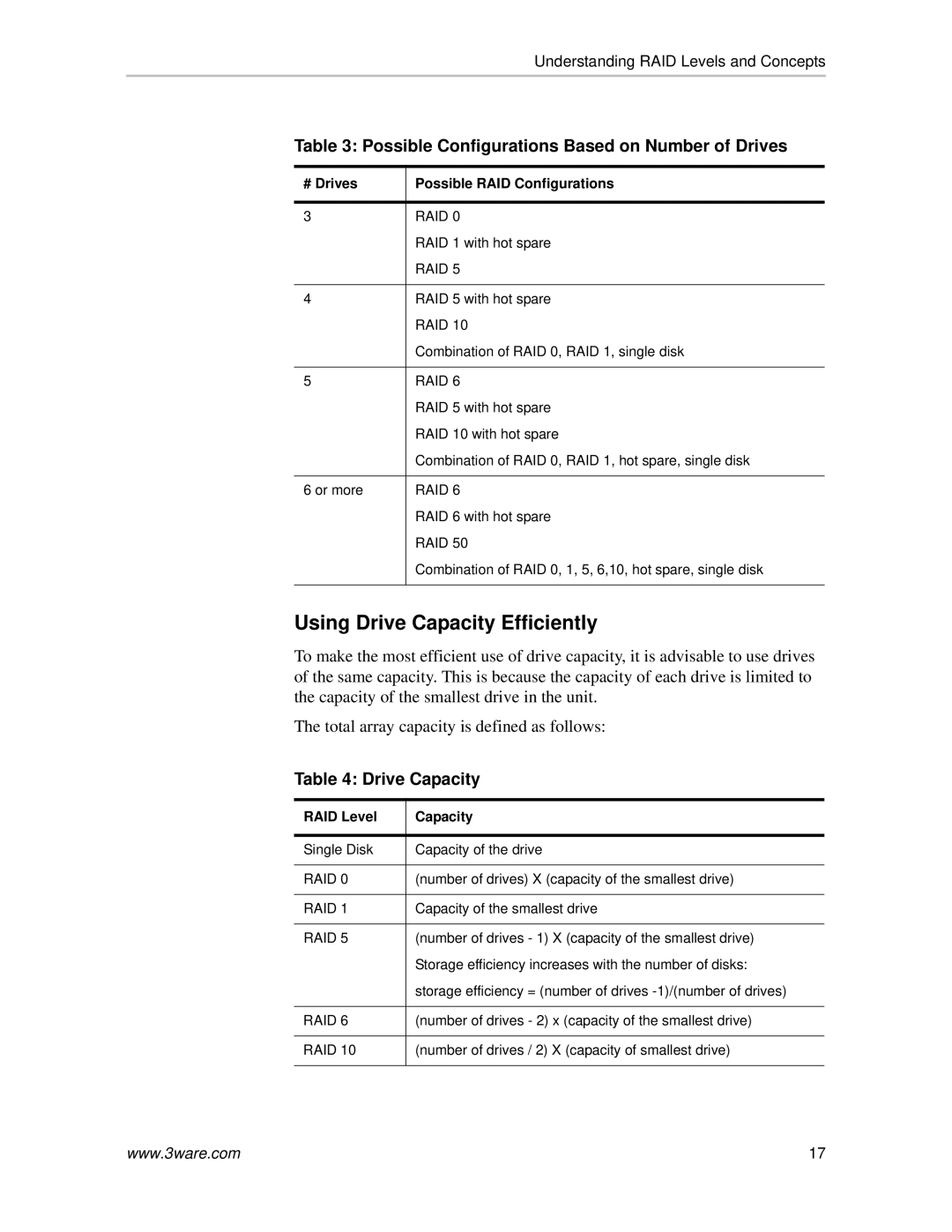Understanding RAID Levels and Concepts
Table 3: Possible Configurations Based on Number of Drives
# Drives | Possible RAID Configurations |
|
|
3 | RAID 0 |
| RAID 1 with hot spare |
| RAID 5 |
|
|
4 | RAID 5 with hot spare |
| RAID 10 |
| Combination of RAID 0, RAID 1, single disk |
|
|
5 | RAID 6 |
| RAID 5 with hot spare |
| RAID 10 with hot spare |
| Combination of RAID 0, RAID 1, hot spare, single disk |
|
|
6 or more | RAID 6 |
| RAID 6 with hot spare |
| RAID 50 |
| Combination of RAID 0, 1, 5, 6,10, hot spare, single disk |
|
|
Using Drive Capacity Efficiently
To make the most efficient use of drive capacity, it is advisable to use drives of the same capacity. This is because the capacity of each drive is limited to the capacity of the smallest drive in the unit.
The total array capacity is defined as follows:
Table 4: Drive Capacity
RAID Level | Capacity |
|
|
Single Disk | Capacity of the drive |
|
|
RAID 0 | (number of drives) X (capacity of the smallest drive) |
|
|
RAID 1 | Capacity of the smallest drive |
|
|
RAID 5 | (number of drives - 1) X (capacity of the smallest drive) |
| Storage efficiency increases with the number of disks: |
| storage efficiency = (number of drives |
|
|
RAID 6 | (number of drives - 2) x (capacity of the smallest drive) |
|
|
RAID 10 | (number of drives / 2) X (capacity of smallest drive) |
|
|
www.3ware.com | 17 |
